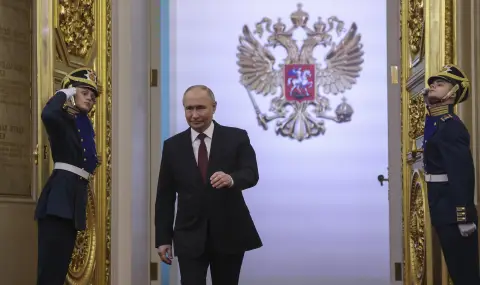A thousand days after Russia's invasion, Ukraine has attacked targets in Russia for the first time with American ATACMS missiles. As far as is known, the strike was aimed at an ammunition depot in the Bryansk region. Moscow reacted the same day - President Vladimir Putin introduced changes to the country's nuclear doctrine, which unties Russia's hands to use nuclear weapons even against a non-nuclear state, if it is supported by a nuclear power.
A late but important decision
The White House's authorization to strike Russia with American missiles is important both on an operational-technical and political level, former commander of US ground forces in Europe, Lieutenant General Ben Hodges, told DW.
From the point of view of military tactics, "this will allow Ukraine to strike Russian and North Korean headquarters, logistics and artillery, which will prevent the Russians from preparing for a counterattack in the Kursk region. This will be an immediate tactical benefit that will undermine Russia's manpower advantage," Hodges said.
In addition, the US decision "opens the door for Britain and France to allow the use of their Storm Shadow and Scalp missiles, increases pressure on Germany for Taurus missiles, and also sends a strong signal of US support for Ukraine," the American general continued.
Sir Lawrence Friedman, a professor of military studies at King's College London, told DW that the key advantage of the ATACMS missiles is their high accuracy and higher efficiency of destruction compared to drones, for example. At the same time, Friedman noted that the delay in the West's decision has allowed Russia to move 90 percent of its bombers beyond the ATACMS range to protect them from possible missile strikes from Ukraine. Ben Hodges also criticizes the US hesitation and notes that "it is the result of the constant unnecessary fear that Russia may resort to escalation with the use of nuclear weapons".
Kremlin intensifies nuclear blackmail
In parallel with the reports of Ukraine's first strikes with ATACMS missiles on Russian territory, Moscow announced that a new nuclear doctrine had been approved, which significantly expands the formal prerequisites for the use of nuclear weapons by Russia. Experts are convinced that this is connected precisely with the White House's permission to use American missiles from Ukraine.
The tabloid "Komsomolskaya Pravda", considered "Putin's favorite newspaper", called the approval of the nuclear doctrine "a final warning" to the West and a direct response to the authorization to strike Russia with long-range missiles. But should another threat from Moscow be taken seriously?
Beyond the angry rhetoric
Nuclear disarmament researcher Mariana Budzherin tells DW that it is very unlikely that Russia will actually risk using nuclear weapons. And while this is not entirely impossible, she still suggests that the changed doctrine and rhetoric of threats are aimed at intimidating the West and undermining its determination to support Ukraine.
So far, waving the “nuclear bat” has brought Russia good dividends in the form of hesitation and hesitation on the part of the West, Budzherin believes. “Just think how carefully and in detail Western capitals have considered and revised their policy towards Ukraine. The escalation potential of each new weapon system delivered was analyzed in the most detailed way, and all this took time, sometimes the weapon did not arrive when it was needed on the front. That is, concerns related to a possible nuclear escalation influenced the timing, types and pace of deliveries," the researcher points out.
But as she notes, even if Russia's nuclear bluff led to a delay in aid, it generally did not work: the Kremlin's main goal - to make the West weaken its support for Ukraine - was not achieved. Usually, the nuclear threat serves to deter another nuclear power from striking Russia. And now it is being used to intimidate a non-nuclear state like Ukraine, which makes no sense, says Budzherin.
Russian nuclear threats should be seen as a banal verbal balancing act aimed at Washington and Berlin to discourage them from supporting Kiev, suggests Ben Hodges. "Threats are just threats", he notes, reminding that Ukraine has repeatedly crossed the Kremlin's so-called red lines, attacking, for example, Russian oil and gas infrastructure or an airport near Moscow. "The Russians know that they will not benefit at all if they use nuclear weapons - it will not bring them any advantages. China told them not to do it, India and Germany - too, and the Biden administration warned that the consequences of a possible use of nuclear weapons would be catastrophic. So I think that nothing good awaits the Russians if they use them. But they see that constant threats have an effect," says Gen. Hodges.
However, will Russia decide to cross a more dangerous line? DW's interlocutors do not believe this. But, as Friedman warns, "the Russians themselves fanned the flames of this issue and now they will have to show that they are ready to respond with something real". The Russian attack on the city of Dnipro with a non-nuclear hypersonic medium-range missile "Oreshnik" can be considered such a response.
Author: Dmitry Kanevsky
